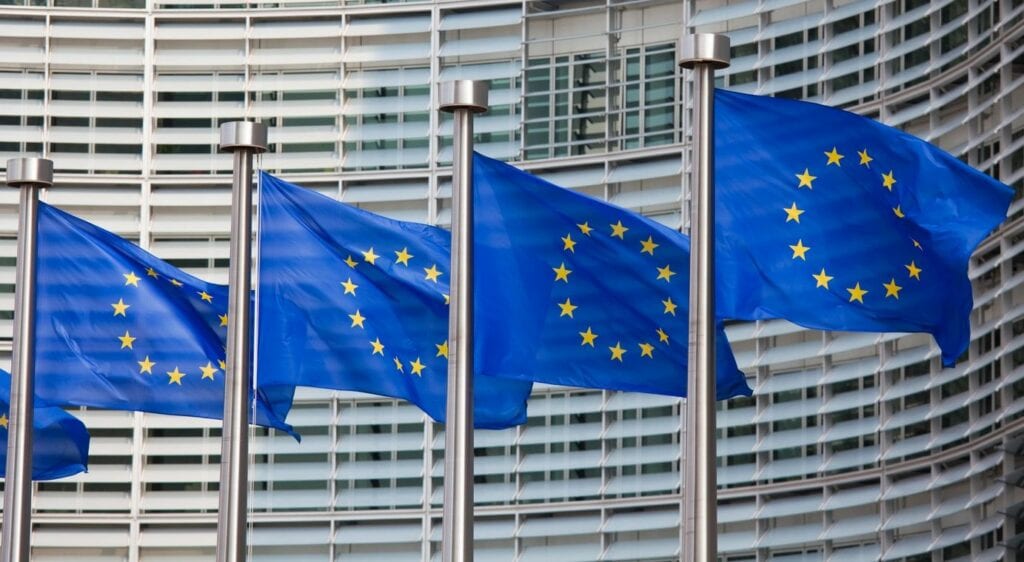Sacred Heart University Luxembourg recently welcomed some of its Fairfield, Connecticut (US) DBA students, who visited a number of local institutions and professionals. Michael Herley writes about his experience on the trip.

Even though the EU is a nonfederated political and economic union, it felt more like an undiscovered country as I read more than 30 scholarly articles on the union in preparation for a weeklong doctoral seminar on European financial stability in Brussels and Luxembourg. I thought perhaps this was because it was my first trip to Europe.
The doctoral seminar kicked off at the Luxembourg Chamber of Commerce with a presentation that focused on Luxembourg’s geographic advantage in close proximity to major European markets and the government’s agility in attracting business. No doubt these features contribute to Luxembourg’s per capita GDP of approximately $104,000, which is roughly 75% higher than the GDP per capita in the US as of 2017—a fact I suspect would surprise many back home.
Another shining aspect of the doctoral seminar was being immersed in the rich history of Europe, Luxembourg, and Brussels, including visits to cultural centers and historic sites, and dining on exquisite cuisine. It was equally impressive to see how environmentally conscious European society is and how clean the air was in both cities. I particularly enjoyed the biodegradable wooden comb my hotel provided, which is not something typically found at US hotels.
This commitment to the environment was further brought to bear during our meeting with European Investment Bank’s civil society officer, who explained how this organization was the largest lender for actionable climate investments in the world and the largest issuer of green bonds.
Coming out of a presentation at the Banque centrale du Luxembourg a couple of days later, I certainly felt like a million euros. Senior representatives from the central bank focused on the importance of financial stability and emphasized the benefits of having a more unified macroprudential policy stance across the 19 EU countries that have adopted the euro, including placing more financial tools under the purview of the European Central Bank. It certainly will be interesting to watch how these policies evolve as unforeseen economic challenges undoubtedly arise.
Throughout our discussion with representatives from the European Stability Mechanism, I struggled a bit, however, to grasp the willingness of the EU to bail out Greece and other countries during the sovereign debt crisis of 2010. Despite the federal deficits in the US, most states are in reasonably good financial shape, and it’s hard to imagine our federal government bailing out one that was on the brink of insolvency.
Now, notwithstanding the fact that the EU is not a “United States of Europe,” its economic integration has modeled certain aspects of the US system—though I surmise it was easier to bring together the 13 original American colonies in pursuit of a more perfect union than the current members of the EU, all of which are long-standing, independent countries with distinct cultures and political and economic systems. We Americans still like to talk about the “Spirit of 1776” and the success of the American experiment. History, too, will to be the judge of the European experiment currently underway.
Unfortunately my terrific week in Luxembourg and Brussels had to come to an end, but not without a capstone presentation at the European Commission (EC) headquarters led by Dr. Vinhas de Souza, head of the economics team of the European Policy Strategy Centre at the EC; Jan Vandenberghe, policy coordinator and trade negotiator for EU-US trade relations at the EC; and Christophe Manet, deputy head of division for China, Hong Kong and Taiwan at European External Action Service. I will admit that I did not fully agree with their perspectives on trade negotiations with the US, but it was an incredible opportunity to hear the European perspective, and I was equally impressed by both the passion and conviction of the presenters. In many ways it felt as if I were living in history as these negotiations continue to play out in the global arena.
During my visit I learned much about the EU’s structure, international finance, and what the EU hopes to achieve in the years ahead, and, despite any shortcomings in the EU structure or early blind spots, it has provided for the longest period of peace among EU members, which alone is history.
I soon headed home, recognizing that I was now a much richer person than when I first arrived in Europe.
Michael D. Herley is a DBA in finance candidate at Sacred Heart University, which has campuses in Fairfield, Connecticut (US), and Luxembourg.
